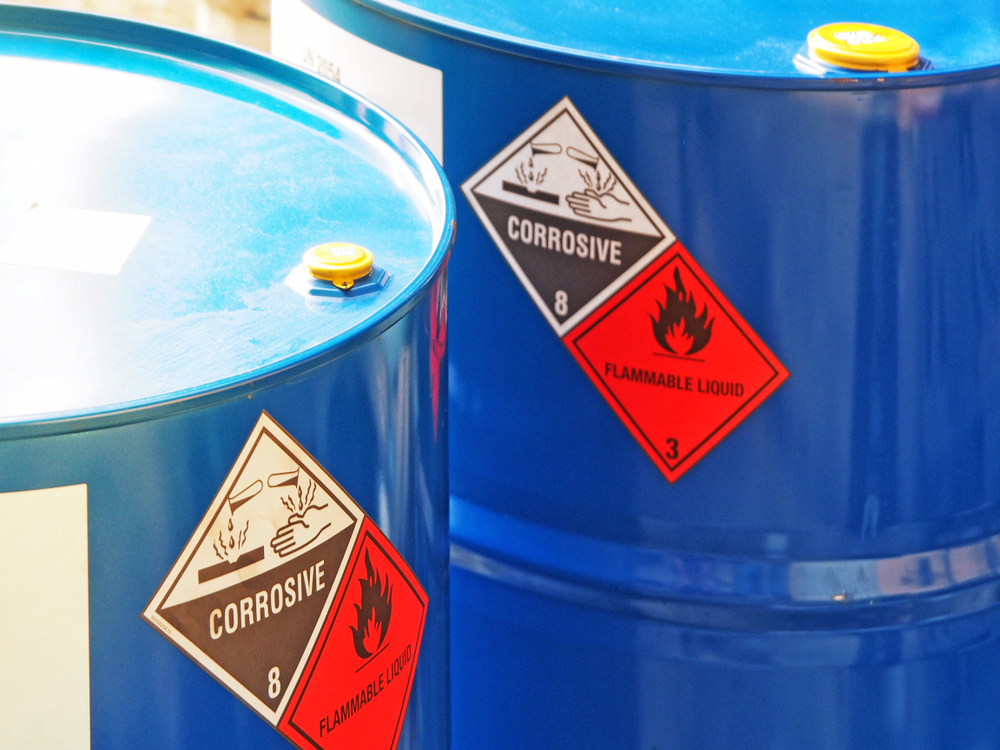Hazardous waste is commonly produced in domestic and commercial operations, but few of us know how to properly dispose of and manage hazardous substances. Fortunately, our expert team at Recyclezone has compiled a brief guide to disposal, assisting us all with our hazardous waste collection needs.
What is hazardous waste?
Hazardous waste is a broad term used to describe waste that may prove harmful to human beings or the environment. Generally speaking, many household products aren’t hazardous so long as they are used in accordance with the specified label instructions, meanwhile other substances are inherently hazardous or can become hazardous if used, stored and disposed of irresponsibly.
Hazardous waste can be categorised into many different types and groups, namely corrosive, toxic, reactive and ignitable waste types, all of which are harmful for different reasons. Most frequently, the hazardous waste we are asked to collect and dispose of includes the following:
- Gas cylinders
- Waste Electrical and Electronic Equipment (WEEE)
- White goods (e.g fridges, washing machines etc)
- Oil and diesel
- Faeces
- Paint
- Tyres
- Asbestos
- Batteries
- Waste solvents
However, there are many more household and commercial items that constitute hazardous waste and therefore must be disposed of appropriately.
What should you do with hazardous waste?
Disposing of hazardous waste is a complicated task, with plenty of dos and don’ts. If you’re wondering how to dispose of hazardous materials, be sure to read the following:
1. Categorise your waste to determine how hazardous it is
First, we recommend categorising your waste into categories in order to determine whether or not it is hazardous. There are a few important things to consider when deciding this, including the waste classification code, where the waste was produced, the substance name and the production and storage guidance. More often than not, hazardous waste has specific disposal recommendations which will instruct you on how to best and most safely dispose of the hazardous waste.
More detailed information on categorising hazardous waste can be found either within the European Waste Catalogue, or in the relevant governmental guidance.
2. Organise secure storage
Once you have categorised your waste, it is important to store it accordingly until it is collected and disposed of. In particular, you need to ensure all hazardous materials are stored in a safe and secure place and that you have minimised or eliminated all risks of the waste escaping as it can pollute surrounding land, air and water.
Particularly if you live and work with others, it is crucial to accurately label any stored waste to ensure it isn’t tampered with or exposed to others as some hazardous materials are particularly dangerous.
3. Hire waste management experts to collect and dispose of hazardous substances
Once it is safely stored, you should arrange a hazardous waste collection service from a reputable and authorised waste management company. They should be registered to collect and dispose of hazardous waste from domestic and commercial properties and so can provide all relevant and necessary certification. We recommend requesting this from any waste carrier as it guarantees proper, ethical and responsible waste disposal.
There are some other options, however, such as contacting your local council to see what services they provide or looking online to find a local hazardous waste disposal service.
4. Receive and keep records of disposal and collection
The final stage is among the most important things to remember when getting rid of your hazardous waste. Each and every waste collection and disposal company should provide you with a transfer note which should be signed by both parties and detail a clear audit trail of the waste’s lifespan from production to disposal.
The transfer note is an imperative part of ensuring all waste carriers are credible, legal and responsible when disposing of waste. Failure to do so means that if the hazardous waste is disposed of illegally, then you will be held partly responsible according to the UK law.
What happens if I dispose of hazardous waste improperly?
There are many dangers of improper disposal when it comes to hazardous waste, some of which include:
- Irritability
- Serious illness
- Local pollution
- Dangerous consumption
- Infection
- Hefty fines
- Serious environmental damage
Owing to the severity of improper hazardous waste disposal, we advise that anyone with hazardous waste in their property or outside contacts a professional team of experts to handle the waste, or thoroughly research disposal themselves.
For a waste management team you can trust or further information on how to dispose of your hazardous waste, get in touch with our friendly team at RecycleZone who will be happy to assist you!
Feature image credit: nhumster / Shutterstock
